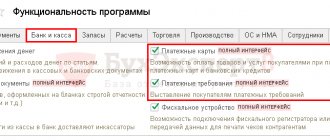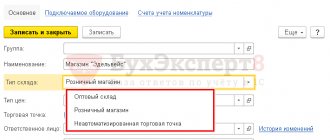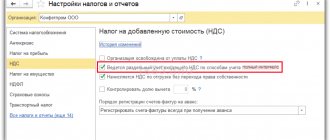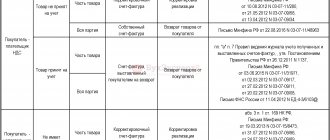Subsidizing is financial support from the state allocated from budgets or extra-budgetary funds at various levels. The state subsidizes organizations operating in the most important areas of the economy from the point of view of the need for development. For example, there are currently subsidies for agricultural producers, wine companies (for growing grapes), small and medium-sized businesses, and others.
In addition, the state provides support to organizations in socially significant areas: housing and communal services, public transport, production and sale of medicines. They sell their products not at market prices, but at regulated tariffs and prices, and also provide benefits established by law to vulnerable segments of the population. All this often leads to a significant decrease in the profits of such organizations or to the occurrence of losses. Subsidies are allocated by the state to cover expenses or losses that arose due to the use of regulated prices and the provision of benefits.
What expenses are considered reimbursable?
First, let's figure out exactly what expenses are called reimbursable. It’s not very complicated here: these are expenses that were made in the interests of another person. Reimbursement of costs is most often formalized in contracts for the provision of services, rental or intermediary. Here are examples of the most common cases:
- food expenses;
- medical services;
- insurance;
- transport;
- utilities;
- travel allowances, etc.
But, of course, the most significant share of all types of reimbursed services are services for the delivery and transportation of goods. Let's look at them in more detail.
Personal income tax on compensation of legal costs
Suppose your company lost a dispute with an individual and you have to reimburse the expenses incurred by him. Are they subject to personal income tax?
Position of the Russian Ministry of Finance . Representatives of the financial department insist that reimbursement of legal costs is taxable income for an individual.
However, representatives of the Ministry of Finance of Russia do not justify their position (Letters dated 08/07/2012 N 03-04-06/6-221, dated 07/03/2012 N 03-04-05/3-827 and dated 07/02/2012 N 03-04-06 /9-189). They only state that as a result the individual receives an economic benefit. Although it is obvious that there is no material gain for the individual here.
In a number of other Letters (dated December 20, 2011 N 03-04-06/3-351 and dated December 7, 2011 N 03-04-05/3-1008), specialists from the Russian Ministry of Finance erroneously claim that clause 3 of Art. 217 of the Tax Code defines an exhaustive list of compensation payments established by the current legislation of the Russian Federation, legislative acts of the constituent entities of the Russian Federation, decisions of representative bodies of local government that are not subject to personal income tax. We noted above that this is not the case.
Note. Compensation for loss of time In civil proceedings (including labor disputes), the court may even seek compensation for the actual loss of time in favor of the other party. It is used when the other party behaves in bad faith. And its size is determined by the court within reasonable limits and taking into account specific circumstances (Article 99 of the Code of Civil Procedure of the Russian Federation). But due to the absence of any legal restrictions on the amount, this compensation also forms taxable income for an individual. As a result, we must agree that any compensation is income.
Author's position . According to the author, the search for the true basis for recognizing these amounts as income should be carried out in a different plane.
The Civil Procedure Code of the Russian Federation does not limit or establish compensation (cases of payment, amounts), that is, it does not standardize them. They are awarded by the court. This is the wording of the law. Therefore, these compensations are subject to clause 3 of Art. 217 of the Tax Code does not apply.
A hint of normality . However, the taxation of legal expenses can be approached differently.
The fact is that the amount of state duty is established by federal laws on taxes and fees. This procedure is established by clause 2 of Art. 88 of the Civil Procedure Code of the Russian Federation and Art. 333.19 of the Internal Revenue Code.
Consequently, in this part of the reimbursable expenses there is still a standardized amount. Therefore, you can try to challenge the taxation of compensation for payment of duties. Although this position is vulnerable. After all, the amount of the fee is not fixed, but depends on the price of the claim.
If an organization argues with an entrepreneur . In disputes between a company and an individual entrepreneur, legal proceedings are conducted on the basis of the Arbitration Procedure Code. But similar rules on compensation are provided for in it (Articles 101, 102, 106 and 110 of the Arbitration Procedure Code of the Russian Federation).
At the same time, compensation for legal expenses awarded to an individual entrepreneur is subject to personal income tax in the generally established manner, regardless of the tax regime applied by him. After all, deriving income in the form of compensation cannot be qualified as conducting economic activity.
What are reimbursable travel expenses?
Let's consider several options related to the delivery of goods.
- The buyer can pick up the goods independently, on a self-pickup basis. For the supplier, this is perhaps the ideal option: he will only need to release the goods from the warehouse directly to the buyer himself or the transport organization hired by him. In this case, the buyer bears all delivery costs personally.
- The supplier can sell his goods at a price that already includes transportation costs. In this case, they will be part of its commercial costs, and the buyer will account for them as part of the purchase price.
- Often the supplier carries out several types of activities - for example, the sale of goods and the provision of transport services. Then it turns out that the buyer purchases each of these services separately - under two different contracts or under a mixed one. In this case, the delivery cost is billed to the buyer in a separate document or is generally highlighted on a separate line.
- And another way is when delivery is organized by the supplier, but not on its own, but with the involvement of a third-party transport company, concluding an agreement with it for the provision of relevant services. However, the cost of delivery is ultimately paid by the buyer of the goods, and not by the supplier, although it is the latter who pays the carrier with funds received from the buyer in the amount of the cost of transport services provided to him. It is these transportation costs that are usually called reimbursable.
What are subsidies and where do they come from?
Subsidies are funds allocated to legal entities, individual entrepreneurs, as well as individuals who produce goods, works or services. They are allocated on a free and irrevocable basis to compensate for lost income or costs associated with the production of goods, provision of services, and performance of work. This definition of a subsidy is given by Article 78 of the Budget Code of Russia.
Subsidies are allocated from the federal, regional and local budgets, as well as federal and territorial state extra-budgetary funds. The cases and procedure for providing subsidies are established by legislative acts and regulations at the appropriate level - federal, regional and local:
- federal law on the federal budget, federal laws on state extra-budgetary funds, regulatory legal acts of the Government of the Russian Federation and federal government bodies,
- laws of the constituent entities of the Russian Federation on the budget of the subject and the budgets of territorial extra-budgetary funds, regulatory legal acts of the regional government or regional government authorities,
- decisions of the governing bodies of the municipality on the local budget, municipal legal acts, acts of local government bodies.
Reimbursement of VAT on transportation from the point of view of tax authorities
Tax authorities and financiers expressed their point of view in a letter from the Ministry of Finance of the Russian Federation dated August 15, 2012 No. 03-07-11/299. What is it about? Financial department specialists point out that invoices, in accordance with paragraph 3 of Article 168 of the Tax Code of the Russian Federation, should be issued only in the case of sales of goods. Next, they consider the case when, in accordance with the terms of the concluded contract, the supplier organizes transportation, and the buyer reimburses him for the transportation costs incurred. At the same time, according to officials, the cost of delivery services should not be indicated in the seller’s invoice for goods supplied.
Then they report that the supplier can also provide transport services to the buyer under commission or agency agreements. In this case, the buyer has the right to deduct VAT on such services on the basis of invoices issued to him by the seller. Please note that in this case, when issuing an invoice, the agent or commission agent who ordered the services for the delivery of goods is required to indicate in it the name of the actual service provider (that is, the carrier), and not his own.
Reasoning in this way, officials come to the conclusion that the buyer cannot deduct VAT on reimbursed transport services, since such invoices, according to paragraph 1 of Article 172 of the Tax Code of the Russian Federation, cannot serve as the basis for a tax deduction.
In other words, financiers, in order to recover VAT, insist on documenting the intermediary relationship between the supplier and the carrier. Consequently, invoices should be drawn up according to the rules established for intermediaries. This means that the supplier of the goods must issue two invoices to the buyer:
- directly on the goods themselves - as a seller;
- for transportation services - as an agent (indicating the name of the actual service provider).
Checking the cost of goods including delivery
In our example, the actual cost of goods is formed from the cost paid to the supplier for the goods and the cost of transport services;
We check the correctness of the formation of the cost of the purchased goods. To do this, it is necessary to create a balance sheet for account 41.01 “Goods in warehouses”:
- Menu Reports – Account balance sheet ;
- The period is indicated , select Account (in the example – 41.01);
- button .
Rice. 165
We calculate the cost according to the item item Horizontal blinds 1.2m*2.5m :
- The cost of purchasing goods including VAT is 75,000 rubles. (see postings under the document Receipt of goods and services (Fig. 162));
- The cost of transportation costs related to the item Horizontal blinds 1.2m*2.5m is calculated:
- Share of item cost in the total cost of the invoice:
75,000 / 135,000 = 0.55 shares
- The cost of transportation costs is calculated based on the total cost of transportation and the share of the item in the total cost of the invoice:
2,500 *0.55 = 1,388.89 rubles. (see transactions according to the document Receipt of additional expenses ( Fig. 164 ) )
- Actual cost of the item Horizontal blinds 1.2m*2.5m :
75,000 +1,388.89 = 76,388.89 rubles
Exactly the amount is 76,388.89 rubles. reflected in the debit of account 41.01 “Goods in warehouses” according to the item item Horizontal blinds 1.2m*2.5m .
The cost of goods has been calculated correctly.
VAT refund on transportation: opinion of the judges
Regarding this situation, the courts believe that the supplier of the goods, who initiates its delivery using the services of a third-party carrier and reimbursement of these expenses by the buyer, is not obliged to pay VAT to the budget on the refunded amount, since in this case there is no sale. It is this position that the arbitrators adhere to; an example of this is the resolution of the FAS Moscow District dated April 12, 2011 No. KA-A41/957-11.
Whether it is possible to recover VAT on expenses for gifts to employees, see here.
Formula for calculating VAT in estimates
You cannot simply take and multiply the final cost of work according to the estimate by the tax rate. The amount for the “VAT Compensation” column must be calculated using the formula. It was approved by letter of the State Construction Committee of the Russian Federation dated October 6, 2003 No. NZ-6292/10:
(Mat + (EM - ZPM) + HP × 0.1712 + SP × 0.15 + OB) × 20%, where:
- Mat - costs for materials according to the estimate;
- (EM - ZPM) - costs of operating machines, reduced by the salaries of drivers;
- HP h 0.1712 - overhead costs in mat costs (17.12% - standard standard, in the Far North it is increased to the level of 18.2%);
- SP × 0.15 - estimated profit according to the standard of 15%;
- OB - equipment operating costs;
- 20, 10 or 0% - VAT rate.
When working with an estimate, remember that it must include all the expenses that are needed to complete the job. If, in addition to builders, office employees are involved, take into account their wages; if you purchased office supplies, take that into account as well. Add fuel, leasing and rental payments, and repairs to the cost of operating vehicles.
Is it possible to do it differently?
To avoid disputes with the tax authorities, you can, of course, do exactly as officials advise. However, there is one subtlety here: according to the Civil Code of the Russian Federation, agency and commission agreements are not gratuitous, which means that some remuneration must be provided for them. And even if the contract does not provide for this, it must still be paid after fulfillment of obligations in an amount similar to the prices charged for similar services.
Therefore, if you decide to conclude a mediation agreement, it will be necessary to provide for some amount of remuneration, even the smallest one. This amount for the seller (who is the intermediary here) will be income, and in accounting, transportation services will transit through account 76.
However, it is worth remembering that the Civil Code of the Russian Federation does not oblige anyone to act according to such a scheme, and the conditions for organizing the transportation of goods can be fixed in other ways. For example, you can provide in the contract for a change in price depending on any indicators that determine it.
Then the price of the product will consist of two parts: constant and variable, determined by the amount of delivery costs. This scheme kills two birds with one stone: transportation costs are compensated, but at the same time there is no mediation.
Filling out document settlement accounts
the Settlement accounts tab :
- In the line Settlement account, account 60.01 “Settlements with suppliers and contractors” must be indicated;
- In the Advance Account , account 60.02 “Settlements for advances issued” must be indicated.
Additional tab :
- The lines Input number and Input date indicate the number and date of the invoice from the supplier;
- It is necessary to post the document without leaving it; for this, use the “Post” .
| STEP 5 |
Accounting and taxation according to the “constant-variable” scheme
It will be exactly the same as in the case when the supplier organizes the delivery of goods to customers at his own expense, taking into account transport costs in the final price of the goods. What happens to VAT in this case?
- The supplier issues the buyer a single invoice without any mention of transport services, that is, with the price of the goods, which already takes into account variable transport costs.
- VAT in the invoice is also allocated as a total amount calculated on the basis of the generalized cost of the goods sold.
- If there is an invoice, the entire amount of VAT can be fully refunded by the buyer.
- The supplier, in turn, also receives an invoice and a certificate of delivery services - but from the carrier, on their basis, takes into account the amount of transport costs in account 44 and deducts VAT on these services.
As you can see, the scheme is very simple and convenient. Now let’s move on to consider the issue of calculating VAT on some other types of reimbursable expenses.
What is VAT compensation under the simplified tax system?
Organizations and entrepreneurs using the simplified tax system do not pay VAT, so they should not include this tax in the price. But there are exceptions. One of these is a construction contract with a customer at OSNO.
Materials, works and services of third parties that are purchased by the contractor to complete the order are included in the estimate. If the seller applies OSNO, then in addition to the purchase price he submits VAT for payment. The simplifier cannot present it to the customer, since he does not pay VAT. It turns out that the customer pays the cost of materials, work and services without VAT, and the entire tax burden falls on the simplified contractor.
Example . LLC "Master" works on the simplified tax system. To carry out the work under the contract, bricks were purchased for 240 thousand rubles - 200 thousand rubles net cost, 40 thousand rubles VAT.
A company on OSNO will buy bricks for 240 thousand rubles, but in the future it will deduct 40 thousand rubles. As a result, the bricks will cost 200 thousand rubles.
Simplified workers will pay 240 thousand rubles for bricks without the right to a VAT refund. In order not to remain at a loss, VAT must be included in the estimate so that the customer compensates for the tax costs.
VAT compensation is an expense item in the estimate that the contractor drew up for the customer. It is needed to protect the simplifier from losses resulting from the inability to present VAT to the customer. According to Art. 709 of the Civil Code of the Russian Federation, such VAT must be covered by the price of the contract.
VAT accrual on refundable travel allowances
Let's consider a situation where the supplier provides the customer with any services, for which the supplier's representative has to be sent to another location. Is it necessary to charge VAT in this case and on what amount?
There are two positions on this issue. The Ministry of Finance believes that compensation for travel expenses is subject to VAT. Financiers express the corresponding opinion in letters dated February 26, 2010 No. 03-07-11/37, November 9, 2009 No. 03-07-11/288 and others.
In them, the Ministry of Finance explains that payment of travel expenses is related to payment for basic services provided by the supplier. In this regard, these reimbursable expenses must be included in the VAT tax base. Having formulated their point of view, officials nevertheless carefully clarify that this is their personal opinion, and the letters are only explanatory in nature.
However, arbitrators often think differently. Since compensation for services does not involve a transfer of ownership, the funds received by the service provider as compensation cannot be subject to taxation.
How is this explained? If the contract for the provision of basic services does not include conditions on the possibility of making travel expenses at the expense of the customer, then the latter are recognized as compensation, which is not revenue and is not subject to VAT. Examples of such decisions: determination of the Supreme Arbitration Court of the Russian Federation No. 6950/07, resolution of the FAS of the North-Western District dated 08/25/2008 No. A42-7064/2007, FAS of the Volga-Vyatka District dated 02/19/2007 No. A17-1843/5-2006 and others).
When does income arise?
According to Art. 209 of the Tax Code, the object of personal income tax taxation is income received by the taxpayer. When determining the tax base, the taxpayer’s income received both in cash and in kind, or the right to dispose of which he has acquired, is taken into account (clause 1 of Article 210 of the Tax Code of the Russian Federation). And the date of actual receipt of income is defined as the day of payment of income or transfer of income in kind (clauses 1 and 2 of clause 1 of Article 223 of the Tax Code of the Russian Federation).
Calculation of VAT on state duty refunds
Let's consider another situation. The company leasing premises in the shopping center paid a fee for state registration of the lease agreement. Subsequently, the tenant must reimburse it. Is it necessary to charge VAT in this case?
Here you can reason in the same way as the judges reasoned in the previous case. According to paragraph 1 of Article 146 of the Tax Code of the Russian Federation, the object of VAT taxation is, in particular, operations for the sale of services. If the tenant reimburses the amount of the state duty paid by the landlord, there is no question of sales, which means there is no object of taxation and there is no need to issue an invoice.
See also “Issue of work books: VAT and income tax.”
Registering a shipping invoice
| Attention | |
| Before registering an “input” invoice, you must make sure that the Receipt of goods and services has been posted ( Post ). |
- Click the Enter invoice at the bottom of the document;
- In the Invoice window that opens, the received document lines will be automatically filled with data from the document Receipt of additional expenses , you need to check them;
- In the fields Vx. number and input date – number and date of the carrier's invoice.
| STEP 10 |
Results
So, we looked at the main situations for calculating VAT on reimbursable expenses and got acquainted with the opinions of officials and judges.
You will have to decide for yourself which position to adhere to. However, you need to understand that if you do not follow the recommendations of financiers, you may have to defend your opinion in court. You can find more complete information on the topic in ConsultantPlus. Free trial access to the system for 2 days.
Issuing an invoice for goods
Registering a supplier invoice (Fig. 116)
| Attention | |
|
Rice. 161
| STEP 6 |
Who will withhold personal income tax from compensation of legal expenses?
A company paying taxable compensation to an individual is a tax agent and performs the corresponding duties on a general basis (clause 1 of Article 226 of the Tax Code of the Russian Federation).
But when compensation to an individual is transferred on the basis of a writ of execution according to the details of the bailiff service, the situation is somewhat different (clause 5 of the Resolution of the Federal Antimonopoly Service of the West Siberian District dated January 24, 2011 in case No. A27-4701/2010).
If compensation was paid through bailiffs without withholding personal income tax, the company must inform the tax office at the place of its registration about the impossibility of withholding tax and the amount of tax (clause 5 of Article 226 of the Tax Code of the Russian Federation).
To avoid conflicts of interest, we recommend following the clarifications of the Russian Ministry of Finance contained in Letter No. 03-04-06/3-351 dated December 20, 2011. It states that the company has the right to draw the court’s attention to the need to determine the debt subject to collection, taking into account the requirements of the legislation on taxes and fees.
Then the court, in the operative part of the decision, will indicate the amount of income to be recovered directly in favor of the individual, and separately - the amount that must be withheld as tax and transferred to the budget.
A similar position is reflected in the Letter of the Federal Tax Service of Russia dated October 28, 2011 N ED-4-3/17996.
If a citizen nevertheless received compensation on which personal income tax was not withheld, he is obliged to declare this income and pay the tax himself (clause 4, clause 1, article 228 of the Tax Code of the Russian Federation).









